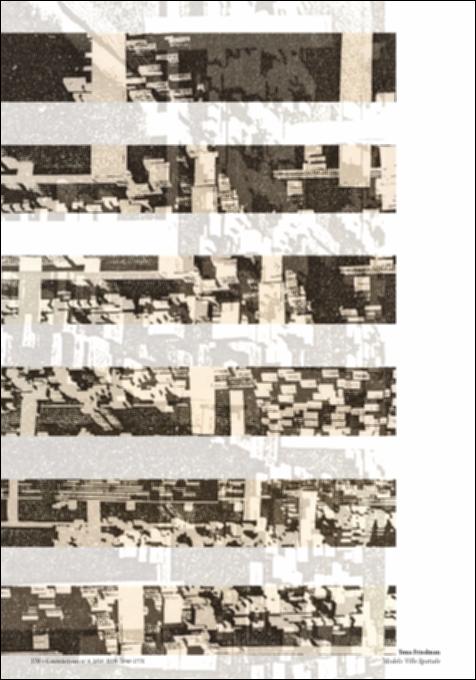Please use this identifier to cite or link to this item:
http://hdl.handle.net/10637/11820Del Movimiento Moderno al 'modernismo' fordista: la desactivación de sus ideales en su translatio imperii
| Title: | Del Movimiento Moderno al 'modernismo' fordista: la desactivación de sus ideales en su translatio imperii From the Modern Movement to Fordist 'Modernism': The Deactivation of its Ideals in its translatio imperii. |
| Authors : | Minguet Medina, Jorge |
| Keywords: | Movimiento Moderno; Modernismo fordista; Estilo Internacional; Gropius; Modern Movement; Fordist Modernism; International Style; Meyer |
| Abstract: | El traslado del centro de la cultura arquitectónica de Europa a América
en el seno de una general translatio imperii modificará por completo la
orientación social del Movimiento Moderno y lo transformará en un estilo
políticamente desactivado que preferiremos llamar 'modernismo' fordista.
Las capas de esta transformación son diversas y convergentes: el intento de
integración y la posterior huida de los regímenes totalitarios por parte de
los grandes ideólogos del moderno, su selección y asimilación a la cultura
de la iniciativa privada americana, y finalmente el triunfo incuestionable de
la ideología del consumo y su alineación con el nuevo y estetizado estilo,
completarán gradualmente este cambio diametral en la historia de la arquitectura
del siglo XX. La segunda parte del siglo no se entiende si no es a
través del filtro de esta velada, pero radical transformación. The transfer of the center of the architectural culture from Europe to America within a general translatio imperii will completely modify the social orientation of the Modern Movement and transform it into a politically deactivated style that would be preferably called Fordist Modernism. The layers of this transformation are diverse and convergent: the attempt of integration within, and the later flight from totalitarian regimes by the great ideologues of the modern; their selection and assimilation to the culture of American private initiative; and finally, the unquestionable triumph of the ideology of consumption and its alignment with the new and aestheticized style will gradually complete this diametral change in the history of twentieth-century architecture. The second part of the century can't be understood but through the filter of this veiled but radical transformation. |
| Description: | En: Constelaciones 8.0. ISSN. 2340-177X. n. 8, 2020, pp 171-186 |
| URI: | http://hdl.handle.net/10637/11820 |
| Rights : | http://creativecommons.org/licenses/by-nc-nd/4.0/deed.es |
| Issue Date: | 1-May-2020 |
| Appears in Collections: | Núm. 8 (2020) |
Items in DSpace are protected by copyright, with all rights reserved, unless otherwise indicated.


